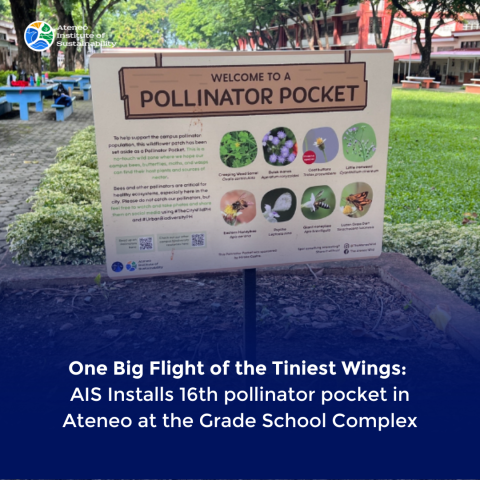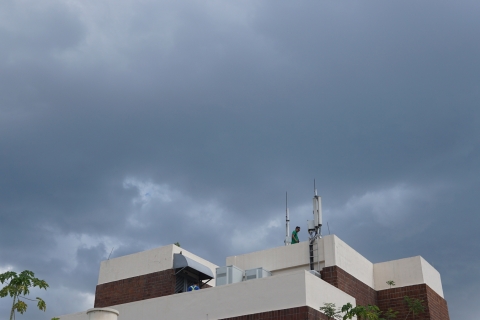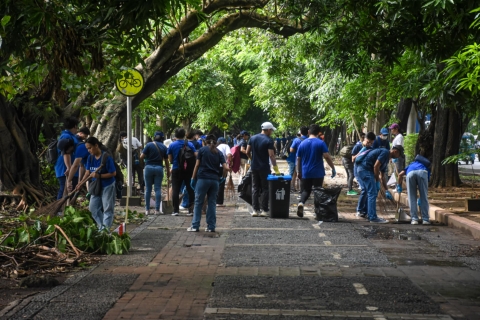Permaculture Perak – A Sustainable Living Education Center in Lenggong, Malaysia.
12 Aug 2019 | Amy Tan
Permaculture Perak – A Sustainable Living Education Center in Lenggong, Malaysia.
Located 7km away from Lenggong, a small sleepy town in Northern Perak, our place comprises of a jungle farmstay, a sustainable living learning center and an organic farm based on the concept of growing one’s own food. Established since 2009, our farmstay hosts visitors who come to escape from the urban hecticness, to be close to nature in the tropical forests and also experience a glimpse of sustainable and off-grid living.
On the fringe of hills that line both sides of Lenggong Valley, our farm is situated 500m above sea level, hugged by the Bintang Hijau Forest Reserve and overlooking the breathtaking hill ranges across the valley. This whole area was listed as a UNESCO World Heritage Site in July 2012 for its archaeological importance in prehistoric civilization.
Climatically, the higher altitude and surrounding untouched rainforest provide a cooler and pleasant temperature, especially in the evenings and nights. In the mornings the view from the farm house is breathtaking. The clouds often settle in the valley below, leaving the farm perched up on the mountain, separated from civilization by a blanket of white.
Across the valley, the cloud cover leaves only some mountain peaks exposed, which highlights the farm’s solitude. The farm’s apparent isolation has the effect of slowing down time, even to a stand-still, as though the entire world had been paused, or had even ceased to exist.
The main philosophy of our center is that nature is the best teacher, healer and home.
Our approach in education focuses on hands-on and experiential learning where we allow people to come close to nature and be an observer and learner of the patterns, behaviours and relationships of ecology. At the same time, by keeping a strictly organic and sustainable principle in all our activities and processes, we aim to prove that it is totally possible to achieve the same goals of production, development and livelihood when we work in tandem with nature’s principles. Therefore the relationship between man and nature is a symbiotic one rather than one where humans are the master controller of nature’s resources.
An important aspect of our farm is also a rich medicinal and herbal garden where we teach people about how it is possible to have a natural pharmacy by foraging and growing local herbs. To change the mindset that all illnesses need to be cured by popping pills, we demonstrate how to consume or process the herbs for maximum benefits and even teach a few delicious dishes that can be tasty and healthy at the same time.
At our farm, we keep a small amount of animals such as chickens and cows which are not for meat consumption. They play their role as being part of the ecosystem of an organic sustainable close-loop design system. For example, the cows help to keep grass trimmed and their manure is used to enrich soil fertility in the garden. Chickens are kept in small enclosures in the garden and moved around as they scratch, graze and enrich the soil.
Challenges to our center’s existence and growth
We obtained a 15-year lease on 39 acres of land, previously an abandoned tea plantation from the late 1990s to 2008. For the first 2 years, extensive restoration works were carried out to the depilated buildings to make it hospitable. Since the beginning of the project, the land had been free of chemical fertilizers and pesticides, making it organic for the past 10 years.
The land is owned by a state development agency of the Perak state government. In 2010, the neighbouring plot had been leased out to a private timber company to carry out a monoculture eucalyptus plantation on the borders of the virgin Bintang Hijau Forest Reserve.
Since the commencement of the plantation project, our center has been challenged with continuous attempts to evict us. Our attempts to pay rent has been repeatedly rejected for several years and it is on the basis of this supposed “non-payment of rental” that the state agency has been attempting to enforce our eviction. After several years of dispute, the state agency sued us at court for the non-payment of our rent. However, we managed to secure an out-of-court settlement which allowed us to remain on our leased land for the remainder of 1.5 years out of the first term of 10 years while we agreed on a new rental payment.
Subsequent to the expiry of the 10 year term, we had repeatedly been making applications to obtain a new lease or the option to purchase the land given our 10 years of work and investment on the land. Our project has been presented to the Perak State Tourism Exco Member, the Perak Chief Minister and even to the Federal Minister of Land, Water and Natural Resources. Unfortunately, we have received no response from all of these government officials.
Our center has attracted international visitors and has been featured on the National Geographic Documentary series, “Living Free with Kimi Werner.” Some of our visitors, most recently a tropical bat specialist and primatologist from University Sains Malaysia, are academic researchers who specialize in wildlife conservation and are drawn to the rich fauna in our area, coming to our farm to listen to wild gibbon calls and witness flying hornbills. And yet, due to our unsettled land status, we have been frequently subjected to unannounced roadworks and land clearing by the neighboring plantation. Sadly, we are unable to assert any authority because the state agency refuses to acknowledge the value and potential of our center. It may be, in their point of view, more lucrative to have monoculture plantations on their land.
Unfortunately, what they do not include in their decision-making and consideration is that a monoculture plantation destroys forest biodiversity, causes habitat loss for wild animals and brings degradation of soil fertility. Our visitors themselves are disappointed to see how such monoculture non-native plantations and large logging extraction sites are destroying beautiful virgin forests.
Our future aims
Once we can successfully obtain a proper status of the land, we are planning to build an ecological-inspired buildings for visitors, students and researchers so we can continue with our educational programs. We are also planning to start a biodiversity research center which can collaborate with academic researchers specialising in environmental and sustainability studies, wildlife conservation and also plant biology.
Our Sustainable Living Apprenticeship Program has hosted learners from all over the world with a common motivation. They realise that the current way of modern and industrialized life is no longer sustainable and to continue in this way, unchanged, in the long run will bring more negative impacts – both in big and small ways for the environment, economy and individual lives.
In our program, we cover a range of topics that focuses on the fundamental needs for basic life and survival, such as water, clean air, healthy organically grown food, electricity, herbal medicines and living in harmony with nature. We are 100% solar powered in our farm so we show how every person can customise and calculate their own power needs based on their own lifestyle. Our students learn to assemble a solar system from scratch, connecting the solar panels, controllers and batteries. Every time a student finishes the assembly, he or she is taken by surprise how simple and straightforward it can be to design their own sustainably sourced power.
The main approach we use for learning is to guide and empower learners with observation skills, direct hands-on experience and the necessary knowledge so they can arrive at their own conclusions. Instead of focussing on theory, the learning philosophy is student-driven– learning by the student’s own interests and curiosity. We don’t always have the answers to everything but we take on the challenge and explore together. For example, one student recently was curious to make pineapple fibre paper after we shared with them this idea which we knew but never attempted ourselves. That became a topic of shared learning through trial and error. The results were stunning!
Another popular program is designed for restoring the nature connection for children. Coined as “Rewilding Children”, our activities are simple yet impactful aimed to create a long-lasting connection for urban children. Given our pristine forest environment, our guided jungle and nature walks draw their attention to little beauties such as mushroom sprouting on forest grounds, and ginger flowers that store water which can be used as soap or shampoo. We also challenge them beyond their comfort zone by encouraging them to boulder in streams and discover hidden rock slides in waterfalls! And because most urban children nowadays have never had a chance to make bonfires in the night under the stars, their senses are fully tantalised by all these new impressions, that make their camping in the jungle quite an unforgettable memory.





